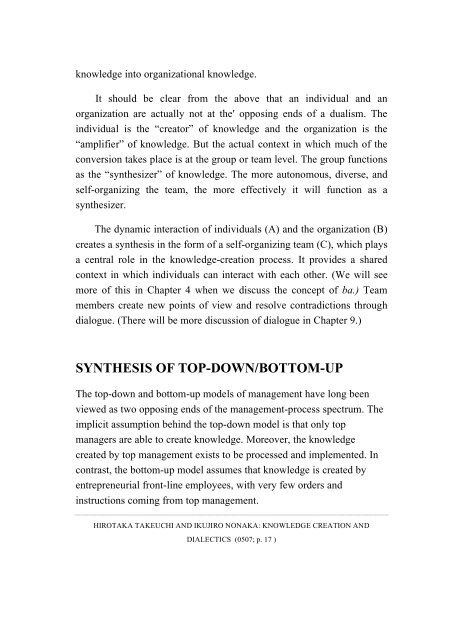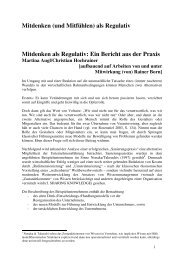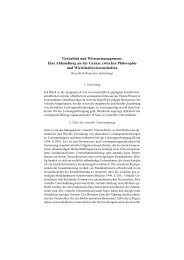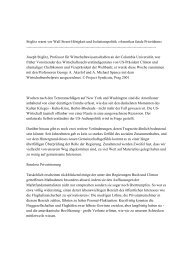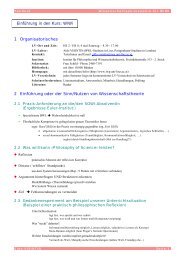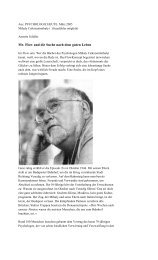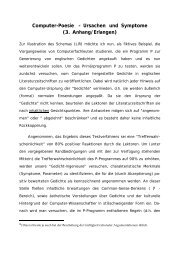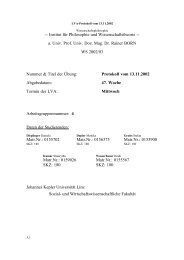KNOWLEDGE CREATION AND DIALECTICS
KNOWLEDGE CREATION AND DIALECTICS
KNOWLEDGE CREATION AND DIALECTICS
You also want an ePaper? Increase the reach of your titles
YUMPU automatically turns print PDFs into web optimized ePapers that Google loves.
knowledge into organizational knowledge.<br />
It should be clear from the above that an individual and an<br />
organization are actually not at the' opposing ends of a dualism. The<br />
individual is the “creator” of knowledge and the organization is the<br />
“amplifier” of knowledge. But the actual context in which much of the<br />
conversion takes place is at the group or team level. The group functions<br />
as the “synthesizer” of knowledge. The more autonomous, diverse, and<br />
self-organizing the team, the more effectively it will function as a<br />
synthesizer.<br />
The dynamic interaction of individuals (A) and the organization (B)<br />
creates a synthesis in the form of a self-organizing team (C), which plays<br />
a central role in the knowledge-creation process. It provides a shared<br />
context in which individuals can interact with each other. (We will see<br />
more of this in Chapter 4 when we discuss the concept of ba.) Team<br />
members create new points of view and resolve contradictions through<br />
dialogue. (There will be more discussion of dialogue in Chapter 9.)<br />
SYNTHESIS OF TOP-DOWN/BOTTOM-UP<br />
The top-down and bottom-up models of management have long been<br />
viewed as two opposing ends of the management-process spectrum. The<br />
implicit assumption behind the top-down model is that only top<br />
managers are able to create knowledge. Moreover, the knowledge<br />
created by top management exists to be processed and implemented. In<br />
contrast, the bottom-up model assumes that knowledge is created by<br />
entrepreneurial front-line employees, with very few orders and<br />
instructions coming from top management.<br />
HIROTAKA TAKEUCHI <strong>AND</strong> IKUJIRO NONAKA: <strong>KNOWLEDGE</strong> <strong>CREATION</strong> <strong>AND</strong><br />
<strong>DIALECTICS</strong> (0507; p. 17 )


